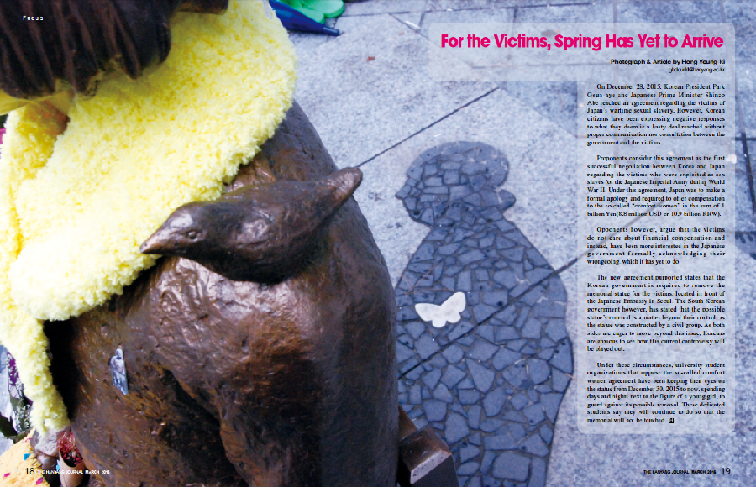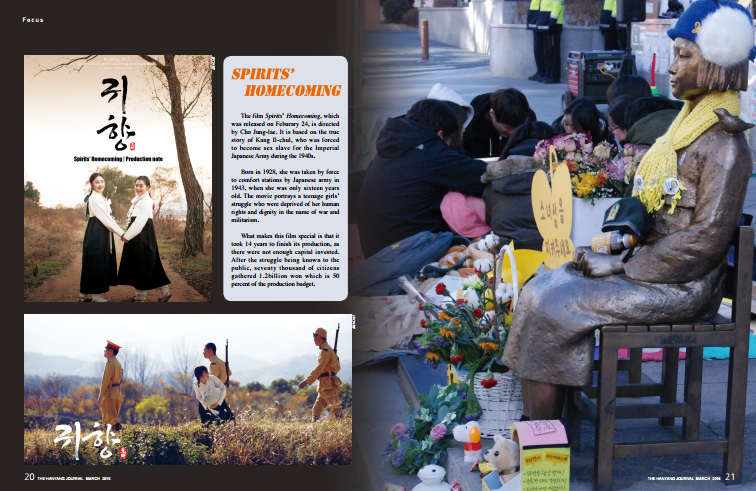

On December 28, 2015, Korean President Park Geun-hye and Japanese Prime Minister Shinzo Abe reached an agreement regarding the victims of Japan’s wartime sexual slavery. However, Korean citizens have been expressing negative responses to what they deem is a hasty deal reached without proper communication nor consultation between the government and the victims.
Proponents consider this agreement as the first successful negotiation between Korea and Japan regarding the victims who were exploited as sex slaves for the Japanese Imperial Army during World War II. Under this agreement, Japan was to make a formal apology and required to offer compensation to the so-called “comfort women” in the sum of 1 billion Yen(8.8 million USD or 10.9 billion KRW).
Opponents however, argue that the victims do not care about financial compensation and instead, have been more interested in the Japanese government formally acknowledging their wrongdoing, which it has yet to do.
The new agreement purported states that the Korean government is required to remove the memorial statue for the victims, located in front of the Japanese Embassy in Seoul. The South Korean government however, has stated that the possible statue’s removal is a matter beyond their control, as the statue was constructed by a civil group. As both sides are eager to move beyond this issue, Koreans are anxious to see how this current controversy will be played out.
Under these circumstances, university student organizations that oppose the so-called comfort women agreement have been keeping their eyes on the statue from December 30, 2015 to now, spending days and nights next to the figure of a young girl, to guard against its possible removal. These dedicated students say they will continue to do so that the memorial will not be touched.

